- HOME
- HUMAN HAIR WIGS
- PUT ON AND GO WIG
- CLOSURES & FRONTALS
- HUMAN HAIR WEAVE
- U/V Part Wigs
- SUPER SAVING
- WHOLESALE

- Top Selling
 $128.00$196.92
$128.00$196.92 $122.00$187.69
$122.00$187.69 $99.00$330.00
$99.00$330.00 $129.50$199.23
$129.50$199.23 $62.00$77.50
$62.00$77.50 $99.00$247.50
$99.00$247.50 $89.00$136.92
$89.00$136.92 $129.00$198.46
$129.00$198.46
- Popular Posts
- How Many Bundles Do You Need With A Closure Or Frontal
- Different Types of Human Hair BrazilianPeruvianMalaysian And Indian Hair
- 9 Effective Ways To Tame Frizzy Curly Wigs Easily
- V Part Wig VS U Part Wig What Is The Difference
- How Long Does A Wig Install Last
- Customer Share
-
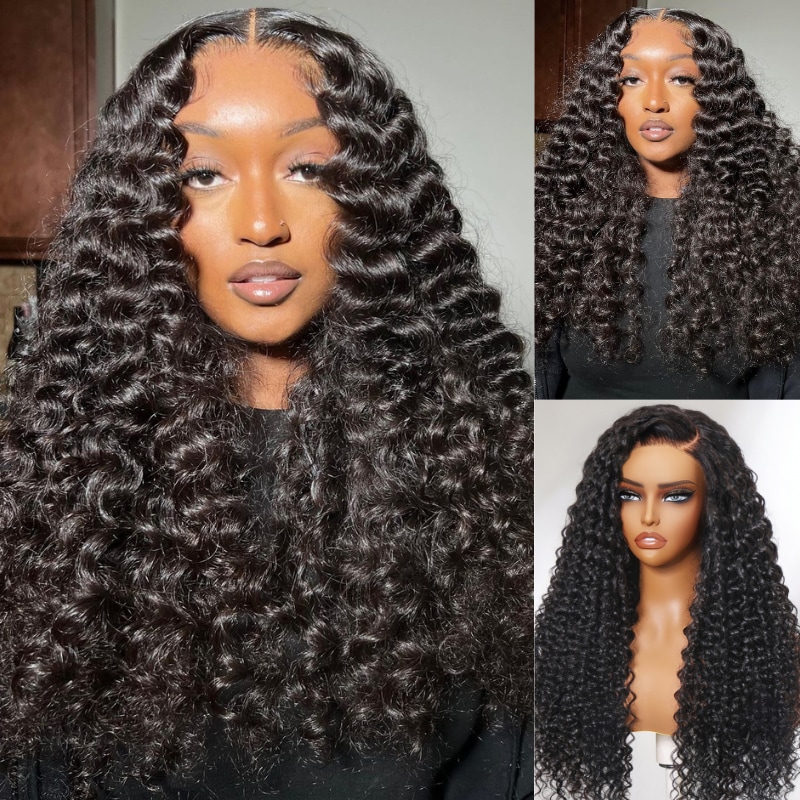 Beautyforever Deep Wave Put on and Go Glueless Lace Wig 13x4 Pre-Evertyhing Lace Front Human Hair Wigs$ 139.00$ 213.85
Beautyforever Deep Wave Put on and Go Glueless Lace Wig 13x4 Pre-Evertyhing Lace Front Human Hair Wigs$ 139.00$ 213.85 -
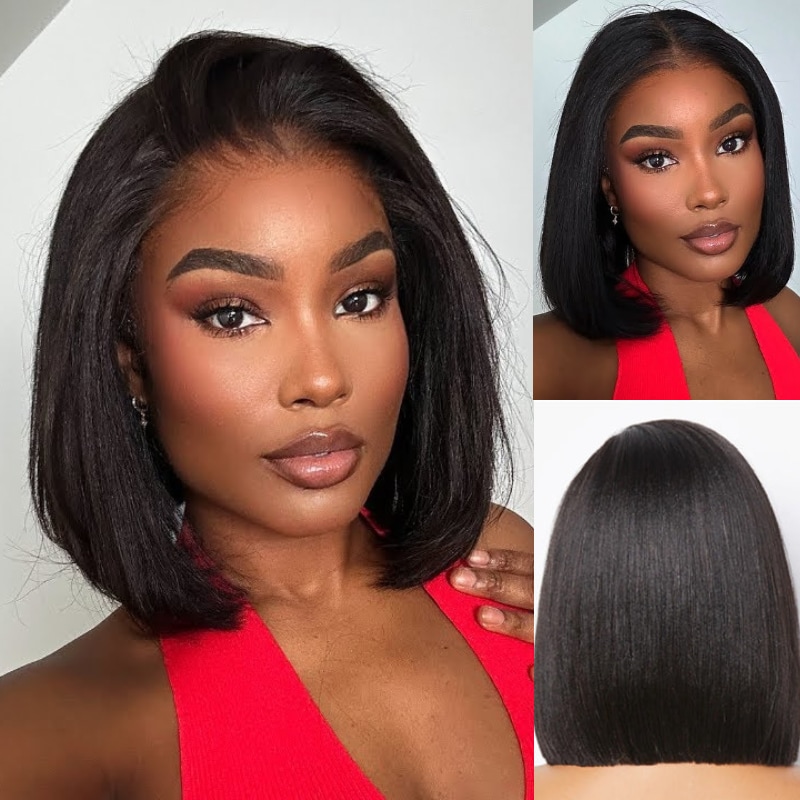 Beautyforever Yaki Bob 7x5 and13x4 Glueless Lace Wig Natural Looking Yaki Straight Bleached Knots Wigs$ 108.00$ 161.19
Beautyforever Yaki Bob 7x5 and13x4 Glueless Lace Wig Natural Looking Yaki Straight Bleached Knots Wigs$ 108.00$ 161.19 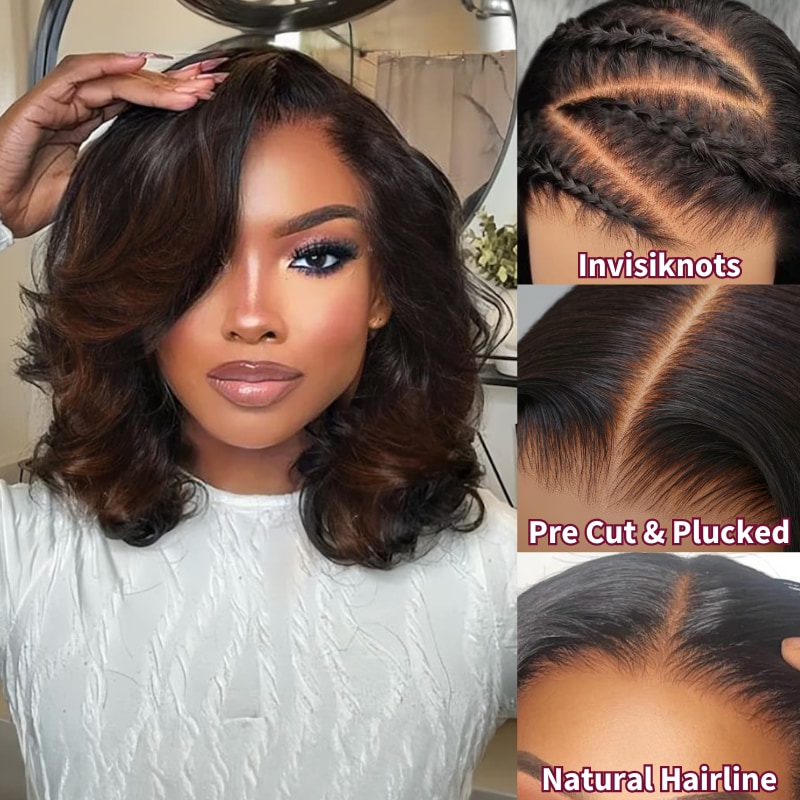
 Beautyforever 13x4 Pre-Everything Lace Front Wig Spiral Curls Black to Chestnut Brown Color Put on and Go Human Hair Wig$ 161.72$ 241.38
Beautyforever 13x4 Pre-Everything Lace Front Wig Spiral Curls Black to Chestnut Brown Color Put on and Go Human Hair Wig$ 161.72$ 241.38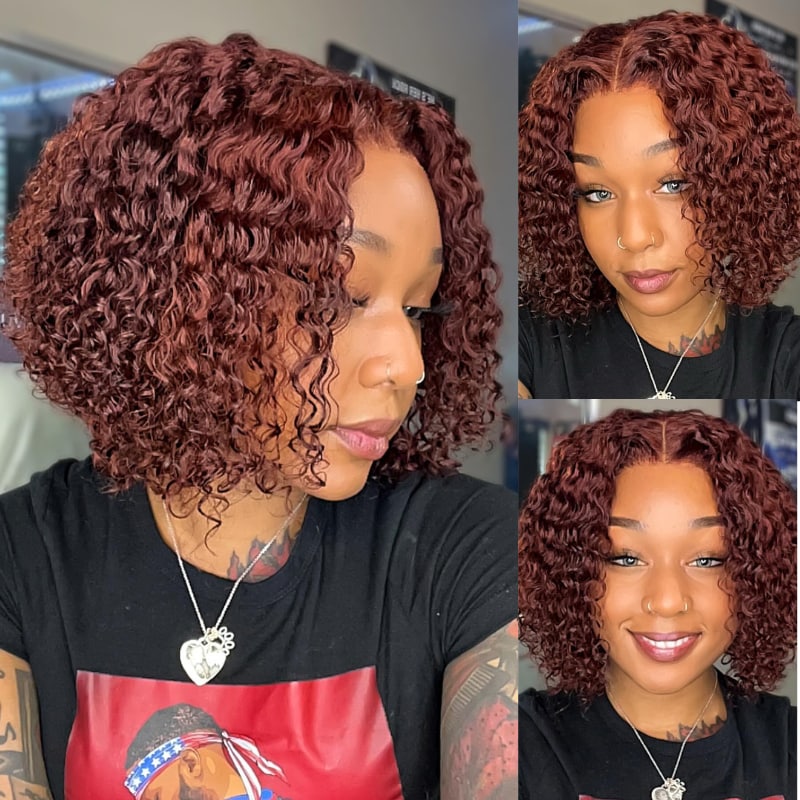
 Beautyforever Short Deep Small Curly 7x5 Bye Bye Knots Reddish Brown and Black to Chestnut Brown Color Put on and Go Wig with Invisible Knots$ 122.66$ 183.08
Beautyforever Short Deep Small Curly 7x5 Bye Bye Knots Reddish Brown and Black to Chestnut Brown Color Put on and Go Wig with Invisible Knots$ 122.66$ 183.08-
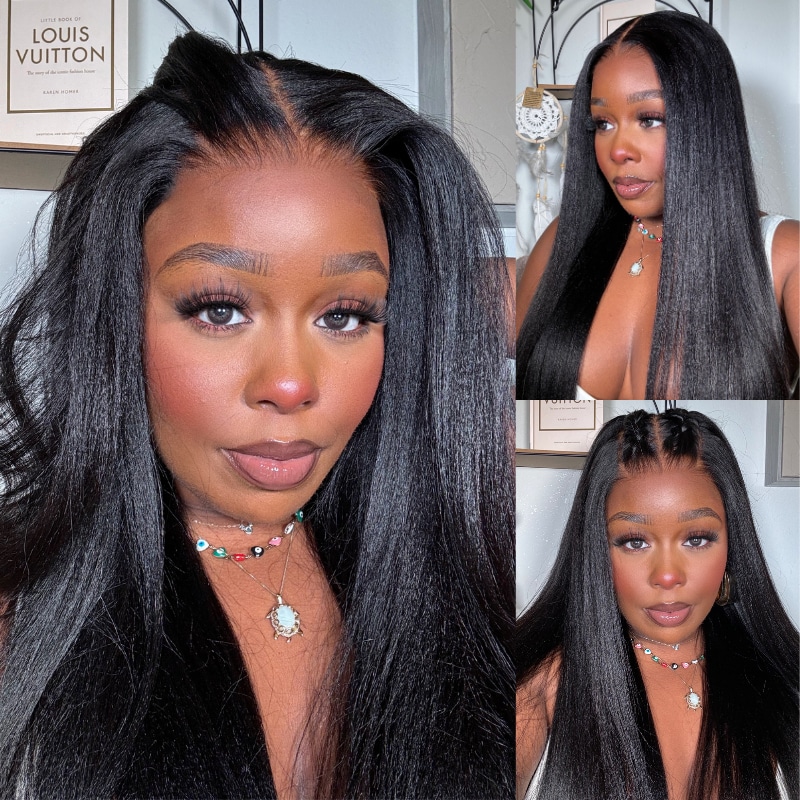 Beautyforever Put on and Go Glueless Lace Wig Yaki Straight 7x5 Bye Bye Knots Human Hair Wig with Pre-Plucked Natural Hairline$ 99.00$ 330.00
Beautyforever Put on and Go Glueless Lace Wig Yaki Straight 7x5 Bye Bye Knots Human Hair Wig with Pre-Plucked Natural Hairline$ 99.00$ 330.00 -
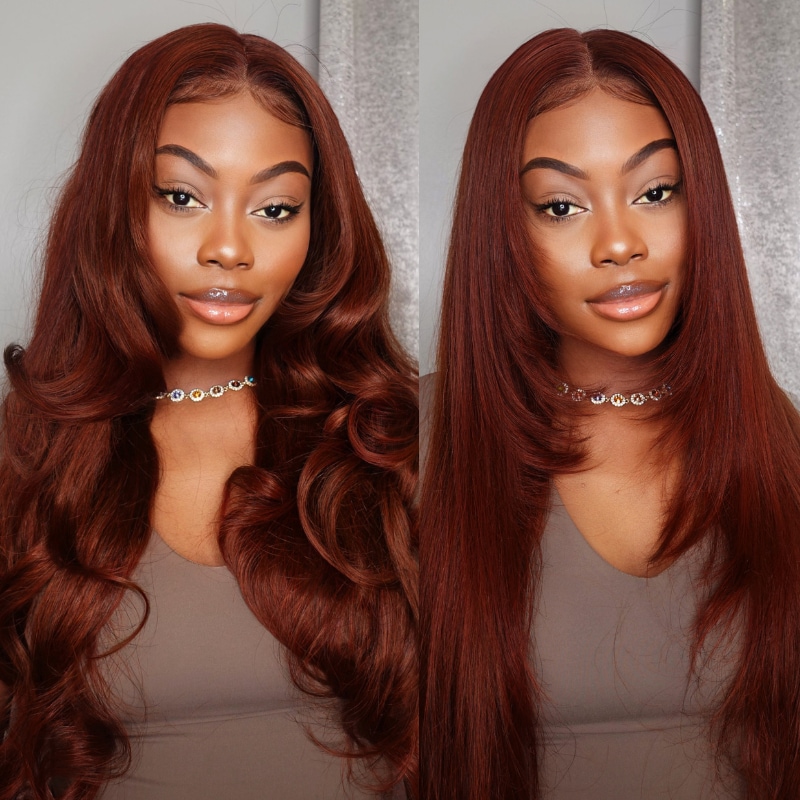 Beautyforever 7x5 ByeBye Knots Wig Reddish Brown Body Wave Put on and Go Glueless Wigs with Pre-Bleached Knots$ 132.97$ 198.46
Beautyforever 7x5 ByeBye Knots Wig Reddish Brown Body Wave Put on and Go Glueless Wigs with Pre-Bleached Knots$ 132.97$ 198.46 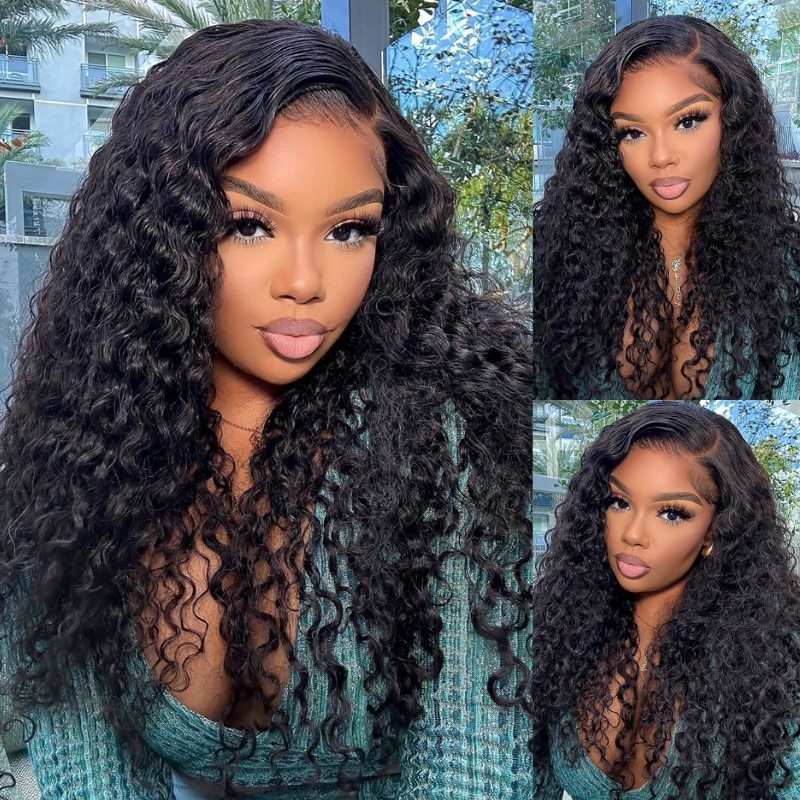
 Beautyforever Bye Bye Knots Wig 7x5 Pre Cut Lace Water Wave Pre Bleached Invisible Knots Glueless Wig$ 133.90$ 199.85
Beautyforever Bye Bye Knots Wig 7x5 Pre Cut Lace Water Wave Pre Bleached Invisible Knots Glueless Wig$ 133.90$ 199.85-
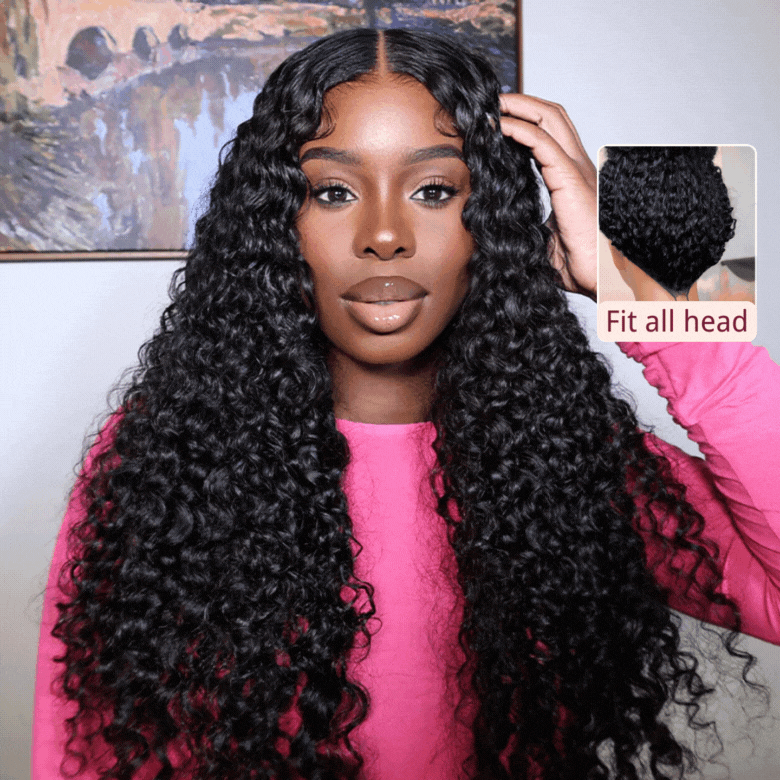 Beautyforever EasiContour V Part Jerry Curly Wig Glueless Natural Black Soft 100% Unprocessed Human Hair Wigs$ 89.00$ 136.92
Beautyforever EasiContour V Part Jerry Curly Wig Glueless Natural Black Soft 100% Unprocessed Human Hair Wigs$ 89.00$ 136.92 -
 Up To 60% | Beautyforever U/V Part Wig Human Hair Body Wave Hair 200% Density Natural Color With Straps Combs$ 59.90$ 149.75
Up To 60% | Beautyforever U/V Part Wig Human Hair Body Wave Hair 200% Density Natural Color With Straps Combs$ 59.90$ 149.75 -
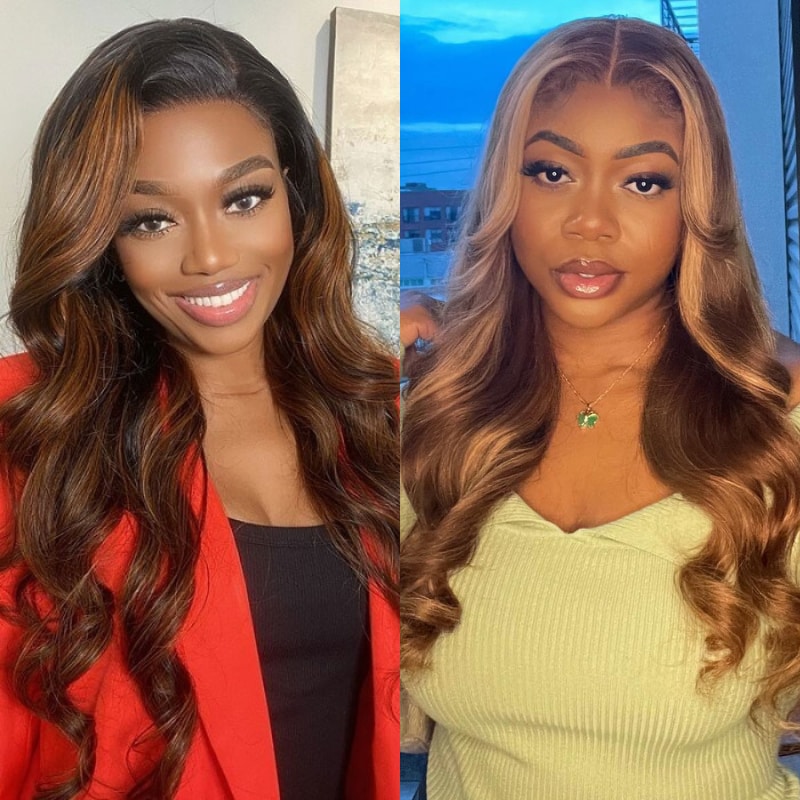 Beautyforever 7x5 ByeBye Knots Wig Pre Cut Glueless Lace Honey Blonde Highlight Body Wave Wigs with Invisible Knots$ 139.15$ 207.69
Beautyforever 7x5 ByeBye Knots Wig Pre Cut Glueless Lace Honey Blonde Highlight Body Wave Wigs with Invisible Knots$ 139.15$ 207.69 -
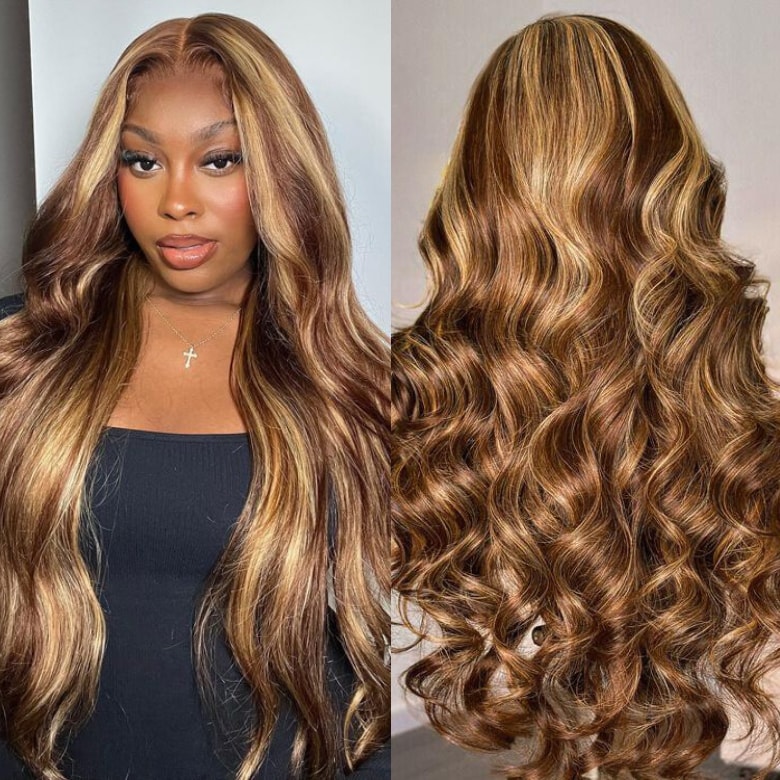 Beautyforever Highlight Blonde Body Wave Glueless Lace Wig 7x5 and 13x4 Pre-Everything Lace Front Wigs with Invisible Knots$ 109.00$ 363.33
Beautyforever Highlight Blonde Body Wave Glueless Lace Wig 7x5 and 13x4 Pre-Everything Lace Front Wigs with Invisible Knots$ 109.00$ 363.33 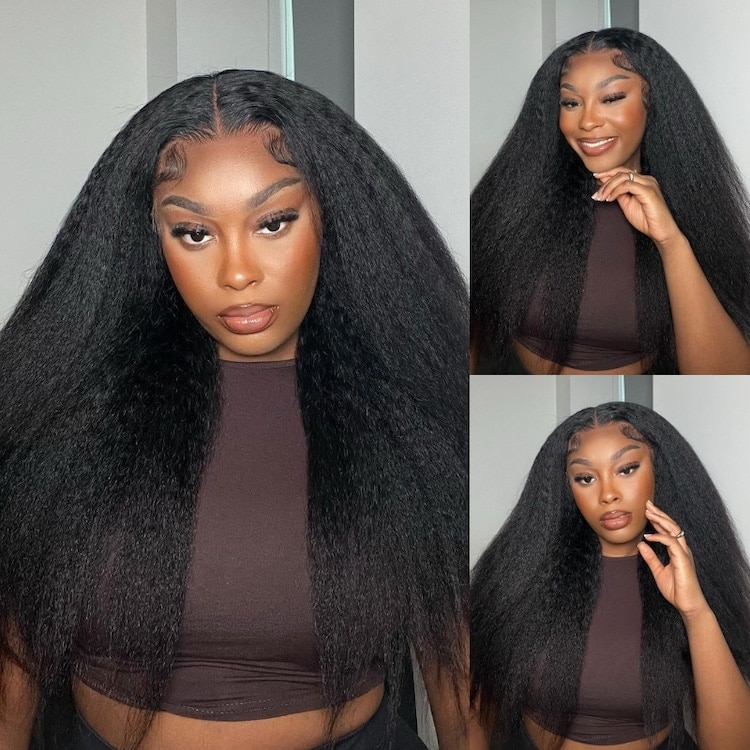
 Beautyforever 13x4 Pre-Everything Frontal Kinky Straight Wig Pre-Bleached and Pre Cut Lace Put on Go Glueless Wigs$ 162.86$ 243.08
Beautyforever 13x4 Pre-Everything Frontal Kinky Straight Wig Pre-Bleached and Pre Cut Lace Put on Go Glueless Wigs$ 162.86$ 243.08
Does Wearing A Wig Prevent Hair Growth
- Tips & Guidance
- Hair Care
- Tutorial
- hair knowledge
- Wigs
- Popular Posts
Whether you're new to wig-wearing or you wear wigs regularly, you've probably asked the question, 'Does wearing a wig prevent hair growth?' This is one of the most common questions asked by wig wearers. For many people, hair is an important part of their identity and a way of expressing themselves. If you're experiencing hair loss or thinning hair, regardless of your experience, it's normal to want to protect growing hair. It's easy to worry that wearing a wig might further cause hair loss or stop hair growth, but don't worry, this article will tell you the answer!
Do wigs prevent hair growth?
The answer is absolutely no! The wig itself does not affect hair growth or damage hair follicles in any way, what really matters is how you take care of your hair. If the hair underneath the wig is not properly protected or cared for, it can cause damage to the hair and affect growth.
Do wigs help hair grow?
Wearing a wig is an important part of an effective and protective hair care routine that promotes natural hair growth. Wearing a wig prevents further damage to your hair from styling, exposure to the elements, and everyday handling.
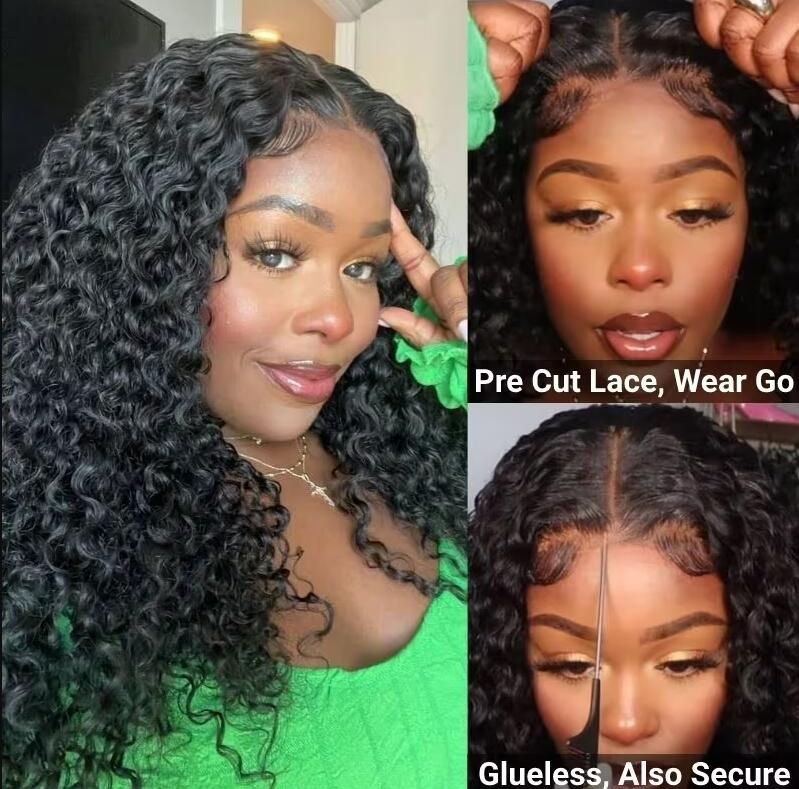
How to promote healthy hair growth under a wig?
1. Wash your natural hair regularly
It is important to ensure that the natural hair under the wig is kept clean. The underside of the wig can get hot, causing the scalp to sweat more often, especially during the hot summer months. Your natural hair can quickly become greasy and develop a bad smell. Or you may even find that the hair underneath the wig is dry and tangled, so it's important to keep your natural hair clean.
Additionally, washing your hair with a sulfate-free shampoo can help prevent harmful chemicals from entering the scalp, which can negatively affect hair growth. If you have dry hair, make sure to moisturize your hair or use a hair mask as part of your shampoo routine to lock in moisture. For oily hair, it's crucial not to over-wash, as the scalp will be stripped of its natural oils, leading to more oil in the long run. Finally, you want to make sure your natural hair is completely dry before putting on a wig to avoid the growth of harmful bacteria that can hinder hair growth.
2. Keep the wig clean
To ensure your scalp and hair are as clean as possible, it's important to keep your wig clean. Sweat, oil, and dead skin cells on the scalp can build up over time and can easily clog the mesh cap inside the wig. The buildup of all of these substances can lead to an irritated scalp, so make sure to wash your wig regularly with a gentle, wig-friendly product to maintain the life of your wig. Generally speaking, wigs should be washed every 15 days or so, however, if you wear wigs particularly frequently, you will need to wash them every 7-10 days, it really depends on how often you wear them, your lifestyle, and other factors such as your living humidity.
3. Reduce contact between hair and wig
Increasing the gap between the hair and the wig is an important part of promoting healthy hair growth under the wig by reducing bacteria and residue build-up. Wrapping your hair or choosing a form of protection, such as a loose braid underneath the wig, will help reduce contact between the hair and the wig. Also wearing a wig cap is a great way to keep your hair healthy. Not only does it add an extra layer of protection between your natural hair and the wig, but it also keeps the wig clean by preventing oily residue from building up in the wig.
4. Let your natural hair and scalp breathe
Taking the wig off every now and then means your natural hair and scalp can breathe. Allowing oxygen to reach the scalp reduces bacteria and odor. Not wearing a wig every few days will keep your natural hair and scalp from becoming overly dry or oily, ensuring natural hair growth.
5. Nourishes your scalp
Regular scalp care is essential to preserve natural hair growth. Using an anti-dandruff shampoo can help prevent dandruff. Or you can use soothing products that contain anti-inflammatory ingredients. These relieve itching and keep the scalp at the proper level of moisture. Using soothing oils and massaging them regularly is a great form of self-care.
In conclusion
While a wig by itself won't damage your natural hair, it's crucial to give your hair and scalp some love by adding some extra protection. remember, cleansing and protection are the keys to promoting healthy, natural hair growth and making sure your natural hair doesn't get damaged!
Submit Comment